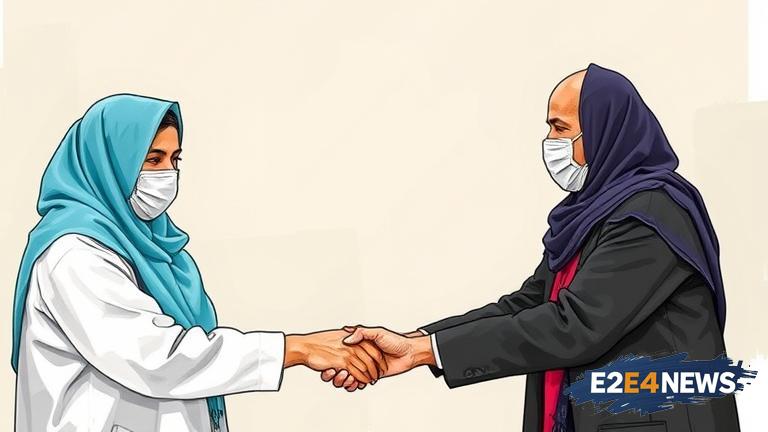The World Health Organization (WHO) and the United Nations Office for the Coordination of Humanitarian Affairs (OCHA) have launched a joint effort to support Afghanistan’s health sector. The initiative aims to strengthen the country’s health services, which have been severely impacted by decades of conflict and instability. The WHO and OCHA are working closely with the Afghan government, as well as other international organizations and NGOs, to provide vital support to the country’s health system. This support includes the provision of medical supplies, equipment, and personnel, as well as training and capacity-building programs for health workers. The initiative also focuses on improving access to healthcare services, particularly in rural and hard-to-reach areas. The WHO and OCHA are also working to strengthen the country’s disease surveillance and response systems, in order to better detect and respond to outbreaks of infectious diseases. In addition, the initiative includes efforts to improve the quality of healthcare services, through the promotion of evidence-based practices and the development of clinical guidelines. The WHO and OCHA are also supporting the Afghan government in its efforts to develop a comprehensive health strategy, which will guide the country’s health sector development over the coming years. The initiative is part of a broader effort by the international community to support Afghanistan’s development and stability. The country has made significant progress in recent years, but it still faces numerous challenges, including poverty, insecurity, and limited access to basic services such as healthcare and education. The WHO and OCHA are committed to supporting the Afghan people and government in their efforts to build a stronger, more resilient health system. The initiative is also aligned with the United Nations’ Sustainable Development Goals (SDGs), which include targets related to health, wellbeing, and poverty reduction. The WHO and OCHA are working closely with other UN agencies, as well as international organizations and NGOs, to support the achievement of these goals in Afghanistan. The country’s health sector faces numerous challenges, including a shortage of qualified health workers, limited access to healthcare services, and a lack of infrastructure and equipment. The WHO and OCHA are working to address these challenges, through the provision of training and capacity-building programs, as well as the development of infrastructure and equipment. The initiative also includes efforts to promote community-based healthcare services, which are critical for reaching rural and hard-to-reach areas. The WHO and OCHA are also supporting the Afghan government in its efforts to develop a national health insurance scheme, which will help to increase access to healthcare services for the most vulnerable members of society. The initiative is part of a broader effort by the international community to support Afghanistan’s development and stability, and to promote the wellbeing and prosperity of the Afghan people. The WHO and OCHA are committed to continuing their support to Afghanistan, and to working with the government and other partners to build a stronger, more resilient health system. The country has a long way to go, but with the support of the international community, it is possible to make significant progress in the years to come. The WHO and OCHA are playing a critical role in this effort, and their support is helping to save lives and improve the health and wellbeing of the Afghan people. The initiative is a testament to the power of international cooperation and collaboration, and demonstrates the impact that can be achieved when organizations work together towards a common goal. The WHO and OCHA will continue to work together to support Afghanistan’s health sector, and to promote the wellbeing and prosperity of the Afghan people.
